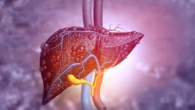
Body: 7 human organs you can live without
0
The human body never ceases to amaze scientists. This complex structure, which has its own characteristic features in each individual, has quite interesting characteristics.
Although each of the human organs has its own specific functions, not all of them are necessary for maintaining life. Sometimes they are damaged as a result of an accident or disease, and the person continues to live.
The passage of time and evolutionary processes have led to the fact that some organs have lost their functions, and therefore their removal does not affect the patient's quality of life.
Do you know what parts of our body we are talking about? If not, stay with us. In our article today, we will introduce you to 7 organs that have ceased to be vital.
1. Tonsils
The tonsils are part of the human immune system, without which one cannot live. Although the tonsils protect the outer part of the respiratory tract of the body from the effects of various bacteria, after 3 years of life they cease to be necessary.
Some medical experts even believe that it is better to remove the tonsils in childhood in order to avoid health problems in the future.
So, it is most often recommended to remove the tonsils for people suffering from chronic inflammation of these organs – acute tonsillitis (angina).
2. The body and the appendix
This hollow organ, attached to the large intestine, is located in the lower right part of the human abdomen.
The appendix does not participate in digestive processes and it is still unknown what its exact function is.
- In many people, the appendix becomes inflamed and infected, causing appendicitis. The treatment for this condition requires removal of the appendix.
- Loss of the appendix does not have any negative effects on the patient's health. The person continues to live as before.
3. Spleen
The spleen is located in the abdominal cavity. It performs a very important job, which is to purify the blood and help the body fight infections.
Despite this, it happens that injuries and diseases lead to the removal of this organ, and the patient continues to live.
After surgical intervention to remove the spleen, a person is able to lead a normal lifestyle. However, additional measures must be taken to protect the body from infections.
4. Reproductive organs
Reproductive organs such as the ovaries, uterus, and testicles have clear functions. It happens that surgeons have to remove them to treat chronic diseases.
As a rule, such operations are performed for cancer. In this case, the removal of these organs prevents the further spread of cancer cells. It happens that the removal of reproductive organs is carried out to treat other diseases, not only cancer.
The loss of these organs usually does not have serious consequences for the patient's life. He is prescribed hormonal drugs to replenish the hormones produced by the lost organs.
5. Kidney
In no case can one deny the importance of kidneys for human life. They are responsible for purifying blood, producing urine and affecting the work of other organs and systems of our body.
Nevertheless, a person can live with only one kidney. Some people have one kidney from birth, others lose this organ due to diseases and injuries. Finally, someone decides to donate a kidney voluntarily and continues to live with one kidney. This is not life-threatening.
- It is believed that the loss has almost no effect on the patient's life expectancy. It does not lead to serious negative consequences for his health.
- Of course, in this case, she has to take additional measures to prevent the appearance of possible health problems.
6. Gallbladder
The gallbladder resembles a green pear-shaped sac located behind the liver. Its main function is to accumulate and produce bile, which is involved in the digestion of food.
Some gallbladder diseases (such as stones or cancer) force surgeons to remove this organ.
- Despite the fact that the gallbladder is involved in the digestive process, its removal is not life-threatening for the patient.
- After surgery, some people complain of diarrhea and bloating after eating heavy and irritating foods. Therefore, they need to monitor their diet more carefully.
7. Stomach
You may find it hard to believe, but it is true: a person can live without a stomach. There is a special type of surgical intervention that involves the complete removal of the patient's stomach. As a rule, doctors decide to take such a step in the presence of cancer.
During this operation, the patient's esophagus is connected to the small intestine. After that, the person is forced to eat with the help of a special serum for several weeks. Then their body adapts to the new reality.
- Such an operation is quite complex, so such patients require strict and careful treatment.
- In the future, their body remains able to digest most of the products, but the portions of food taken should be smaller.
- Sometimes the body of such patients is faced with a violation of the absorption of certain microelements. In such a situation, a person is prescribed to take nutritional supplements.
Amazing, isn't it? Each of us understands perfectly well how important it is to carefully take care of our body in order to stay healthy. However, there are organs that we can live without if life circumstances leave us no choice but to remove them.









Leave a Reply